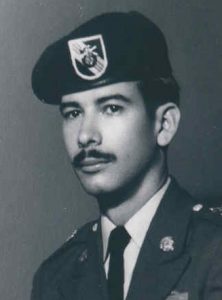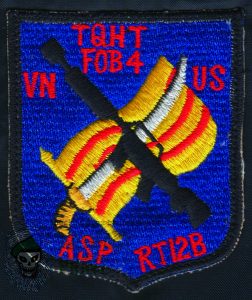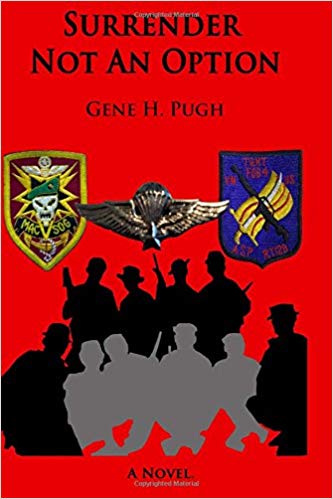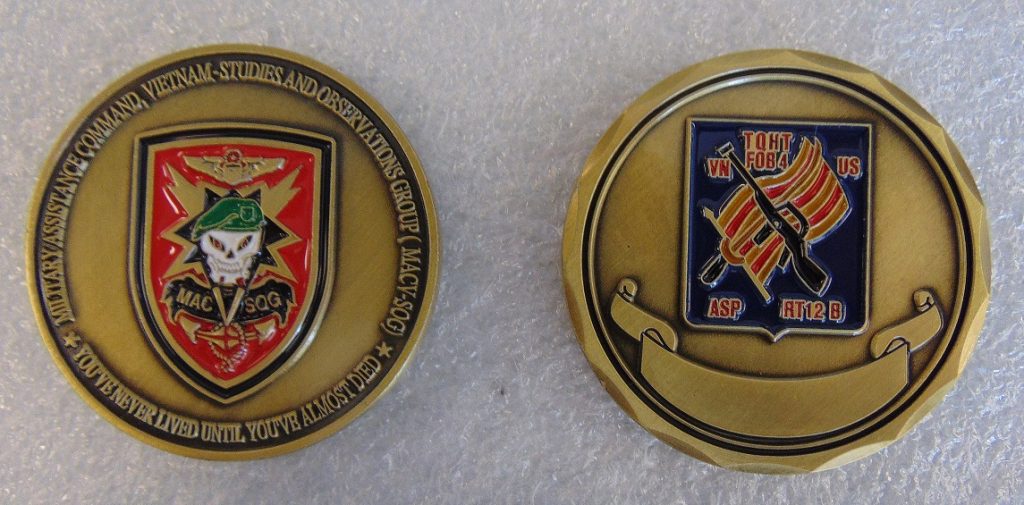Gene Pugh
MILITARY BIOGRAPHY
My military career started on February 10, 1966 at Fort Polk, Louisiana where I did my Basic Training and AIT. Volunteered for Special Forces. Upon graduation from Airborne School I reported to Fort Bragg. Trained as a radio operator and later assigned to Company C, 6th Special Forces Group (Abn). During this time I was lucky to be mentored by seasoned officers and NCO’s. Crossed trained in Intelligence and as an Assistant Medic. All of us were required to be proficient in light and heavy weapons, camp defense, and small unit tactics.
In Vietnam I was assigned to the 5th Special Forces Group with further orders to SOA (Special Operations Augmentation) which meant that I was under MACVSOG (Military Assistance Command Vietnam Studies and Observation Group). The Studies and Observation Group designation was to draw attention away from the real purpose of the group, under OPS – 35 directive, small reconnaissance teams to infiltrated into denied areas for purpose of gathering information to be that would be later pieced into the mosaic of intelligence. The missions included troop movements, wire taps, location of road parks, fueling stations, command centers, capturing enemy POW’s, and anything else that Saigon wanted or needed. Was posted to C&C Detachment-FOB 4 (Later Command and Control North) in Da Nang. My first duty was in the message center and requested my NCOIC to be transferred to the Recon Teams.
I was assigned to Reconnaissance Team Asp that was comprised of three Americans and eight former NVA soldiers (The only such team in camp at that time). As assistant team leader I was positioned to the rear of the unit to help sanitize the trail and deal with any enemy personnel tracking us. One of the duties of the team leader was to make sure that the assistant team leader was capable of leading the team should he become incapacitated. On my two such missions of leading the team we were compromised on the LZ and never completed the assigned mission.
I was able to complete eight more missions as an assistant team leader.
During December ’68 through April ’69 the team had one in country mission near the DMZ. We were inserted as a stay behind when a Marine company was being air lifted out of the LZ. We were also in line of sight and under the guns of Marine post LZ Hickory which was positioned approximately four kilometers from the inserting LZ. Our mission was to capture an NVA prisoner. The next morning as we were positioning ourselves and unknown to us that we had been spotted by the Marine artillery observers an advance NVA patrol wandered into our position. Caught by surprise a close quarter firefight was started killing all of the NVA and before we could search the bodies for identifying information we could hear the main body of the enemy unit advancing on our position. We called for an immediate extraction. As luck would have it the Forward Air Controller was able to divert the air unit that was returning to base and was able to extract us in less than five minutes or so. We found out later, the Marines on the hilltop couldn’t make out who was who and delayed their fire order. That was lucky for us. From this incident, headquarters got a lessons learned memo, keep special operation missions away from conventional area of influence.





